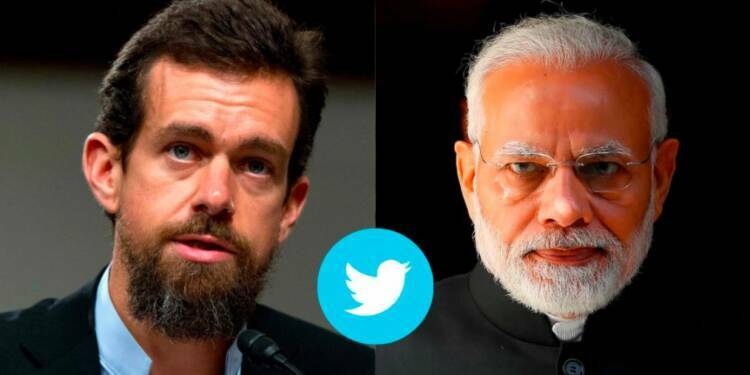Twitter is fast turning into a punching bag for 1.4 billion people, with the microblogging platform losing its intermediary status that grants immunity against offensive, third-party content appearing on the website. And the US-based social media giant is facing the latest setback over failure to comply with the new IT rules.
India had brought in certain iron tight IT rules for intermediaries last month. The purpose was to avoid provocative content that can easily flare up tensions in a diverse society like India. Yet, Twitter failed to comply and did not employ a grievance officer in time, despite being granted repeated extensions. As a result, Twitter India MD or any other top executive functionary could face police questioning and criminal liability under the Indian law over illegal and inflammatory content posted by any user.
Indian government sources say that Twitter is the only social media platform that did not comply with the new IT laws and all other mainstream platforms have complied with them. So, Twitter is the only one entity locking horns with the Indian government over the new intermediary rules. And this is why they are frequently running into trouble with the government.
Twitter seems to be having a problem of being too stubborn here. And its consequences were for everyone to see after Twitter failed to curb fake news when some individuals used their Twitter handles to spread animosity and communal hatred that led to a communal incident in Loni, near India’s National Capital New Delhi.
On the other hand, Twitter seems politically biased when it tags tweets by leaders of India’s ruling Bhartiya Janta Party (BJP) as ‘manipulated media’. Also, things have gone as far as Twitter removing the blue tick from the handle of India’s Vice-President.
Twitter, being a US-based company, thinks that India cannot afford to ban it, because any such move will lead to propaganda about the country being anti-free speech. Yet, what Twitter doesn’t understand is that India won’t look for a ban. What the government wants to do is to discipline the microblogging website. It is letting everyone know that India’s only goal is to make all foreign companies operating in India follow the law of the land.
And to put it simply, the government is having fun with its battle against Twitter. It notices how Twitter is becoming incoherent. The government and the people of India would definitely want Twitter CEO Jack Dorsey to engage directly on the issues concerning Twitter in India.
But within Twitter India, there is a lot of vagueness about the working structure and hierarchy of the organisation. For example, Twitter India managing director Manish Maheshwari was summoned for questioning. But later, Maheshwari changed his bio from ‘MD at Twitter’ to ‘Trying to run business @TwitterIndia’. So, we can at least say there is a lack of clarity in terms of both the purpose and organization of the microblogging platform in India.
The vague style of Twitter India hierarchy however doesn’t stop the Indian government from engaging the microblogging platform whenever issues crop up regarding any provocative content, especially when the intermediary status of the organization has been withdrawn. Meanwhile, it seems that Twitter CEO Jack Dorsey is being kept out of the latest turn of events, even if he is the one who has given the go-ahead on refusal to comply with the latest IT rules in India.
What Twitter is going in India also has a racist, condescending dimension. In Germany, for example, social media giants did face a lot of flak. Germany has tightened online hate speech rules and has asked platforms to send reports straight to the German Federal authorities. In the case of Berlin, we don’t see any resistance from Twitter. So, why should Twitter not comply with New Delhi?
Make no mistake, India doesn’t want to restrict free speech. The new IT rules merely empower Indian citizens to create an effective grievance redressal mechanism for the local users. All that the Indian government wants is to ensure that social media giants follow the law of the land and remove provocative comments/ hate speech while keeping in mind India’s sensitive circumstances and the high level of social diversity.
Read More: Twitter deleted the Nigerian President’s tweet. The Nigerian President deleted Twitter
For Twitter to engage in a battle with the Indian government doesn’t make much sense. If it is just about ideological bias, the economic costs are very high. At the end of the day, we are talking about one of the world’s biggest internet user bases. I’m fact, Twitter stocks have already recorded a 25% dip after the tussle over the Indian IT rules.
If Twitter continues to lock horns over the Indian IT rules, we could be looking at the social media giant facing bigger financial setbacks as a natural consequence of picking a fight with the government of a flourishing economy.
The tussle over IT rules has thus backfired badly over Twitter. And the loss of intermediary tag is probably the biggest loss as it opens up Twitter to an unimaginable extent of accountability over the content that goes live on the microblogging platform.
